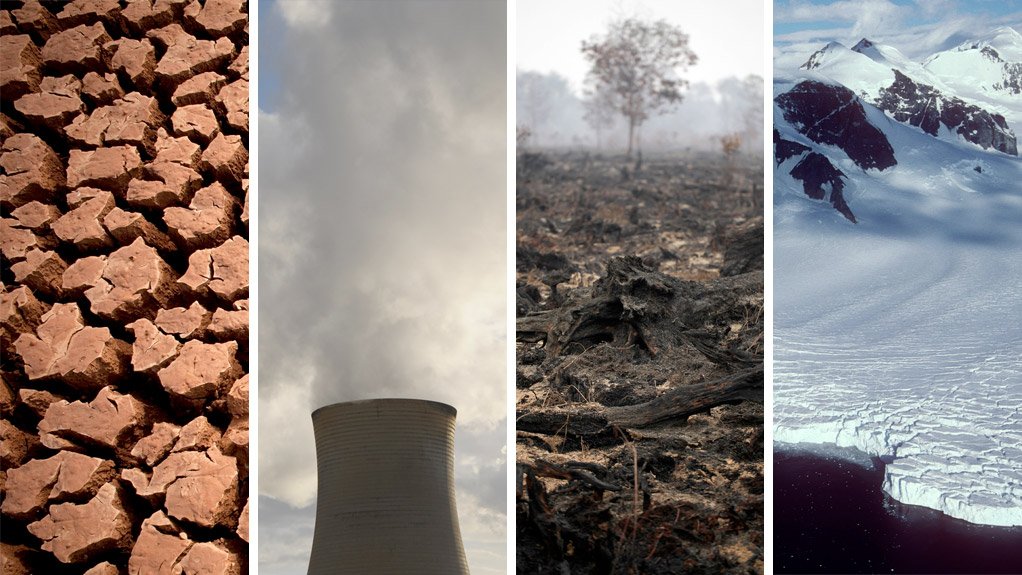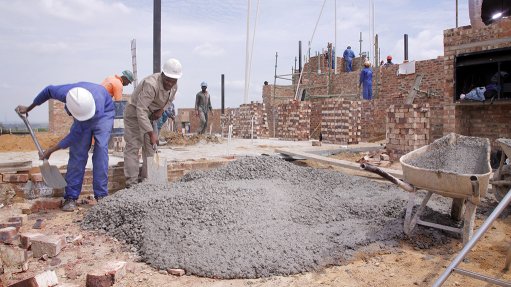Per capita consumption , not population boom, driving climate change – scientist
Describing climate change as the “defining issue of the twenty-first century”, the Council for Scientific and Industrial Research (CSIR) natural resources and the environment chief researcher Dr Bob Scholes said on Monday that increased per capita consumption – rather than an increasing global population – was a key driver of climate change.
“We need to push back against the belief that the booming populations of developing countries are causing climate change. It is rather the fact that the per capita consumption of developed States is very high,” he noted at a climate change briefing, in Pretoria.
Scholes, who was a coordinating lead author on the fifth Intergovernmental Panel on Climate Change (IPCC) report, which assessed the vulnerability and adaptation of ecological systems, socioeconomic sectors and human health to climate change, added that extensive research had confirmed that global climate patterns were changing in reaction to “human behaviour” and the subsequent high levels of global greenhouse gas (GHG) emissions.
The report further found that increasing global temperatures followed a dynamic upward trend that coincided directly with a rise in carbon dioxide (CO2) emissions.
However, as the atmosphere had little storage capacity for heat, which was primarily stored in the oceans, an increase in GHG emissions did not necessarily emulate an increase in temperatures.
“Ultimately, we have to decrease the amount of CO2 in the atmosphere, otherwise we will end up with a cool, but acidified earth,” Scholes commented.
These comments iterated the findings of the IPCC report, which was released on March 31 and stated that the effects of climate change were already evident on “all” continents and across the oceans.
“The world, in many cases, is ill-prepared for risks from a changing climate, but there are opportunities to respond to such risks. Though, the risks will be difficult to manage with high levels of warming,” it noted.
The report, titled 'Climate Change 2014: Impacts, Adaptation, and Vulnerability', from Working Group II of the IPCC, detailed the impacts of climate change to date, the future risks from a changing climate and the opportunities for effective action to reduce risks.
It concluded that responding to climate change involved “making choices about risks in a changing world”, finding that the greatest risk from a changing climate emerged from “vulnerability and exposure overlapping with hazards”.
ADAPTATION AGENDA
Working Group II cochairperson Vicente Barros said, in many cases, global populations remained unprepared for the climate-related risks they already faced.
Barros’ counterpart, Working Group II cochairperson Chris Field, added that investments in improved preparation could “pay dividends” in the present and the future.
“Adaptation to reduce the risks from a changing climate is now starting to occur, but with a stronger focus on reacting to past events than on preparing for a changing future. This adaptation is not an exotic agenda that has never been tried and governments, firms and communities around the world are building experience with adaptation,” he noted.
“This experience forms a starting point for bolder, more ambitious adaptations that will be important as climate and society continue to change.”
Field held that, with high levels of warming that resulted from continued growth in GHG emissions, risks would become more challenging to manage and would challenge even establish, sustained investments in adaptation.
According to the report, observed impacts of climate change had already affected agriculture, human health, land-based ecosystems, ocean-based ecosystems, water supplies as well as livelihoods.
“The striking feature of observed impacts is that they are occurring from the tropics to the poles, from small islands to large continents and from the wealthiest countries to the poorest.
“The report concludes that people, societies and ecosystems are vulnerable around the world, but with different vulnerability in different places, as climate change often interacts with other stresses to increase risk,” Field said.
Noting that adaptation could play a key role in decreasing these risks, he believed that, once it was accepted that climate change was a challenge in managing risk, a range of opportunities for integrating adaptation with economic and social development would emerge.
“We definitely face challenges, but understanding those challenges and tackling them creatively can make climate-change adaptation an important way to help build a more vibrant world in the near term and beyond,” Field said.
The IPCC’s Working Group I report, which assessed the physical scientific aspects of the climate system and climate change, was released in September 2013, while the Working Group III report, which assessed options for mitigating climate change through limiting or preventing GHG emissions, would be released later this month.
The work of the IPCC – which currently had 195 member States – was shared among these three working groups, comprised of scientists and experts in the climate change field.
The IPCC, which was set up by the World Meteorological Organisation and the United Nations Environment Programme in 1988, is the international body responsible for assessing the science related to climate change and providing policymakers with regular assessments of the scientific basis of climate change, its impacts and future risks, as well as options for adaptation and mitigation.
Comments
Announcements
What's On
Subscribe to improve your user experience...
Option 1 (equivalent of R125 a month):
Receive a weekly copy of Creamer Media's Engineering News & Mining Weekly magazine
(print copy for those in South Africa and e-magazine for those outside of South Africa)
Receive daily email newsletters
Access to full search results
Access archive of magazine back copies
Access to Projects in Progress
Access to ONE Research Report of your choice in PDF format
Option 2 (equivalent of R375 a month):
All benefits from Option 1
PLUS
Access to Creamer Media's Research Channel Africa for ALL Research Reports, in PDF format, on various industrial and mining sectors
including Electricity; Water; Energy Transition; Hydrogen; Roads, Rail and Ports; Coal; Gold; Platinum; Battery Metals; etc.
Already a subscriber?
Forgotten your password?
Receive weekly copy of Creamer Media's Engineering News & Mining Weekly magazine (print copy for those in South Africa and e-magazine for those outside of South Africa)
➕
Recieve daily email newsletters
➕
Access to full search results
➕
Access archive of magazine back copies
➕
Access to Projects in Progress
➕
Access to ONE Research Report of your choice in PDF format
RESEARCH CHANNEL AFRICA
R4500 (equivalent of R375 a month)
SUBSCRIBEAll benefits from Option 1
➕
Access to Creamer Media's Research Channel Africa for ALL Research Reports on various industrial and mining sectors, in PDF format, including on:
Electricity
➕
Water
➕
Energy Transition
➕
Hydrogen
➕
Roads, Rail and Ports
➕
Coal
➕
Gold
➕
Platinum
➕
Battery Metals
➕
etc.
Receive all benefits from Option 1 or Option 2 delivered to numerous people at your company
➕
Multiple User names and Passwords for simultaneous log-ins
➕
Intranet integration access to all in your organisation




















